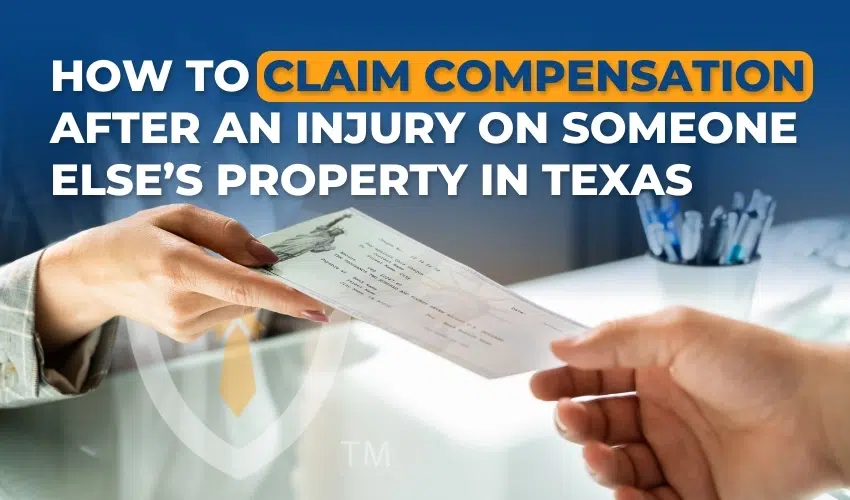Suffering an injury on someone else’s property can be an overwhelming experience. Whether it happens at a store, an apartment complex, or another location, you may be dealing with medical concerns, time away from work, and uncertainty about how to handle the situation. Texas law allows those injured due to unsafe conditions to seek compensation, but the process involves legal considerations that can be difficult to handle alone.
Premises liability law in Texas establishes that property owners and businesses have certain responsibilities when it comes to maintaining safe conditions. If hazardous conditions exist and someone is injured as a result, legal options may be available. However, proving liability requires more than simply showing that an injury occurred. There must be evidence that the owner or occupier of the property failed to take reasonable steps to prevent harm.
How Do You Know If You Have a Claim?
Not every injury on someone else’s property results in a premises liability claim. Certain legal factors determine whether a property owner or business may be held responsible. One of the most important questions in these cases is whether the property owner was aware of the dangerous condition and failed to take action. If the owner ignored or neglected a known hazard, there may be grounds for legal action.
Another factor is the injured person’s legal status while on the property. Property owners owe the highest duty of care to customers and invited guests, ensuring their premises are reasonably safe. Individuals who are trespassing are typically not owed the same level of protection. However, exceptions exist, particularly when it comes to dangerous conditions that could harm children. Because premises liability cases involve multiple legal considerations, determining whether a valid claim exists often requires a careful evaluation of the circumstances.
What Needs to Be Proven in a Premises Liability Case?
In Texas, a premises liability claim must meet specific legal requirements. The injured person must demonstrate that the property owner or occupier had a duty to maintain safe conditions, that this duty was not met, and that the hazardous condition directly led to the injury. Establishing these elements requires strong supporting evidence, such as maintenance records, surveillance footage, and witness statements.
An attorney can assist in collecting the necessary documentation, identifying key evidence, and presenting the information in a way that strengthens the case. These cases often involve disputes over whether the property owner had knowledge of the hazard and whether reasonable steps were taken to fix it. Because liability is not always immediately clear, gathering supporting evidence is a critical step.
What Are the First Steps After an Injury?
After an injury, certain actions can help protect both your health and any potential legal claim. While medical care is the first priority, documenting the accident and ensuring proper reporting can also play an important role in a premises liability case.
Here are the essential steps following an injury on someone else’s property:
- Seek medical attention immediately. Some injuries do not show symptoms right away, and medical records serve as key evidence in legal claims.
- Report the accident to the property owner or manager. This creates an official record of the incident.
- Document the scene if possible. Photos, videos, and witness statements may help establish the cause of the injury.
- Avoid discussing fault with the property owner or their insurance company. Insurance adjusters may try to use statements against you.
- Keep all records related to the injury. This includes medical bills, prescriptions, and any correspondence related to the accident.
Because handling evidence and legal documentation can be difficult while recovering from an injury, an attorney typically takes on these responsibilities, allowing the injured person to focus on their health.
Who Can Be Held Responsible for an Injury?
Determining liability depends on several factors, including who owns or controls the property where the injury occurred. Responsibility may fall on different parties depending on the circumstances of the case.
- Property owners are often responsible for maintaining safe conditions on their premises.
- Businesses that rent or lease commercial spaces may be liable if the accident occurred due to unsafe conditions within their control.
- Landlords may be responsible for injuries occurring in common areas of rental properties, such as stairwells or parking lots.
- Government entities may be liable for injuries on public property, though claims against the government involve specific legal procedures.
Identifying the responsible party requires examining the property’s ownership, maintenance records, and any agreements that outline responsibility for safety measures. An attorney can review these factors and determine the appropriate course of action.
What Challenges Can Arise in Premises Liability Cases?
Premises liability cases often involve disputes over liability, the extent of the injury, and whether the hazardous condition could have been prevented. Property owners and their insurance companies may argue that they were unaware of the hazard, that it was an unavoidable accident, or that the injured person was responsible for their own safety.
Proving negligence requires thorough documentation, including records of prior complaints about the hazardous condition, maintenance logs, and expert testimony. Insurance companies may attempt to minimize the claim by arguing that the injuries are not as severe as reported or that pre-existing medical conditions were the primary cause of harm. Handling these challenges often requires legal strategies that address the evidence and counter the arguments made by property owners and insurers.
What Should You Keep in Mind About Premises Liability Cases?
Premises liability cases require legal analysis, careful handling of evidence, and a clear understanding of Texas law. Because property owners and businesses often dispute liability, these cases involve negotiations, legal filings, and in some instances, litigation.
Understanding the legal principles behind premises liability can provide clarity on the rights and options available after an injury. Texas law provides avenues for those harmed due to unsafe conditions to seek compensation, but the process involves important legal considerations. Evaluating the details of an incident, gathering supporting evidence, and determining the best course of action are all critical steps in pursuing a claim.



